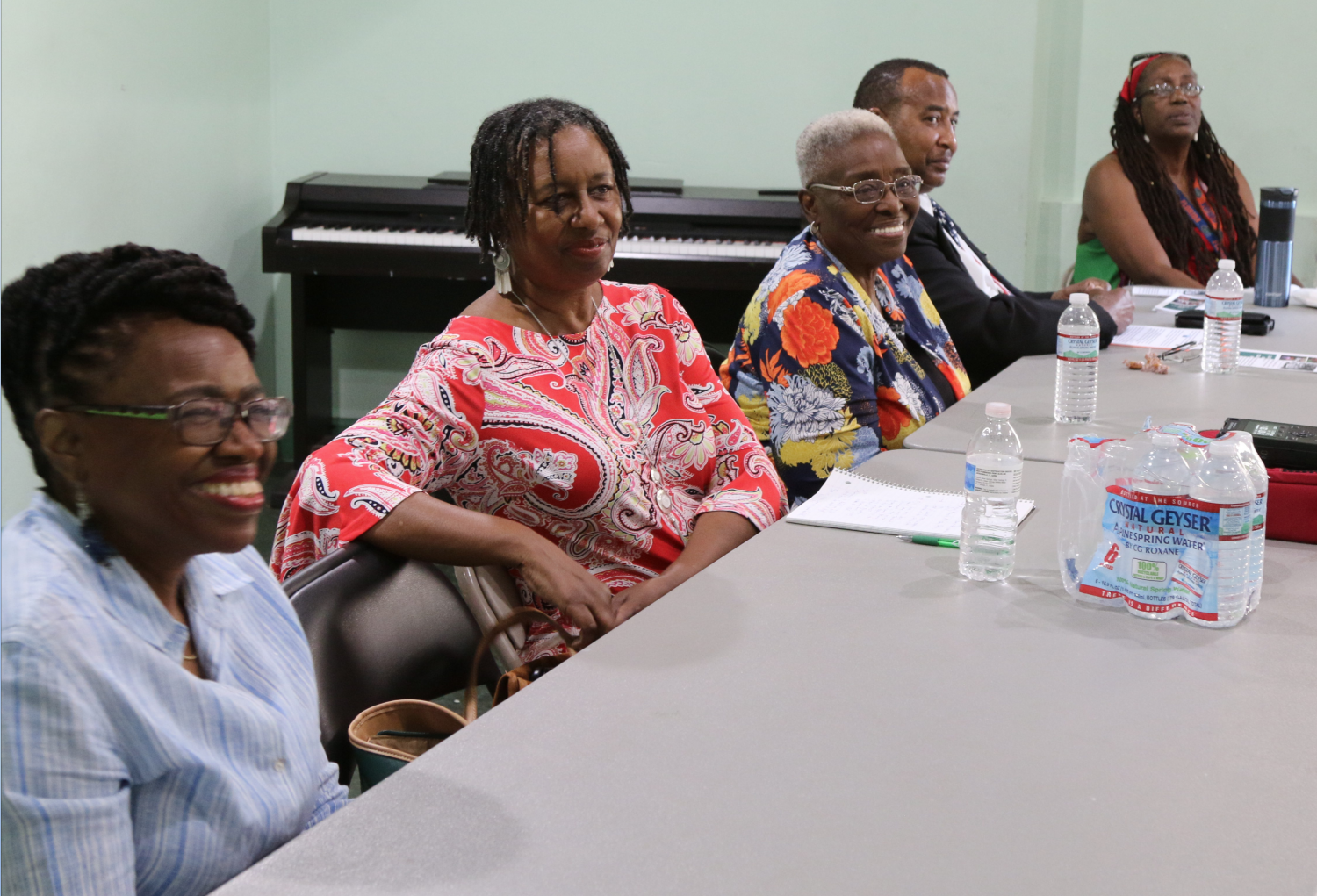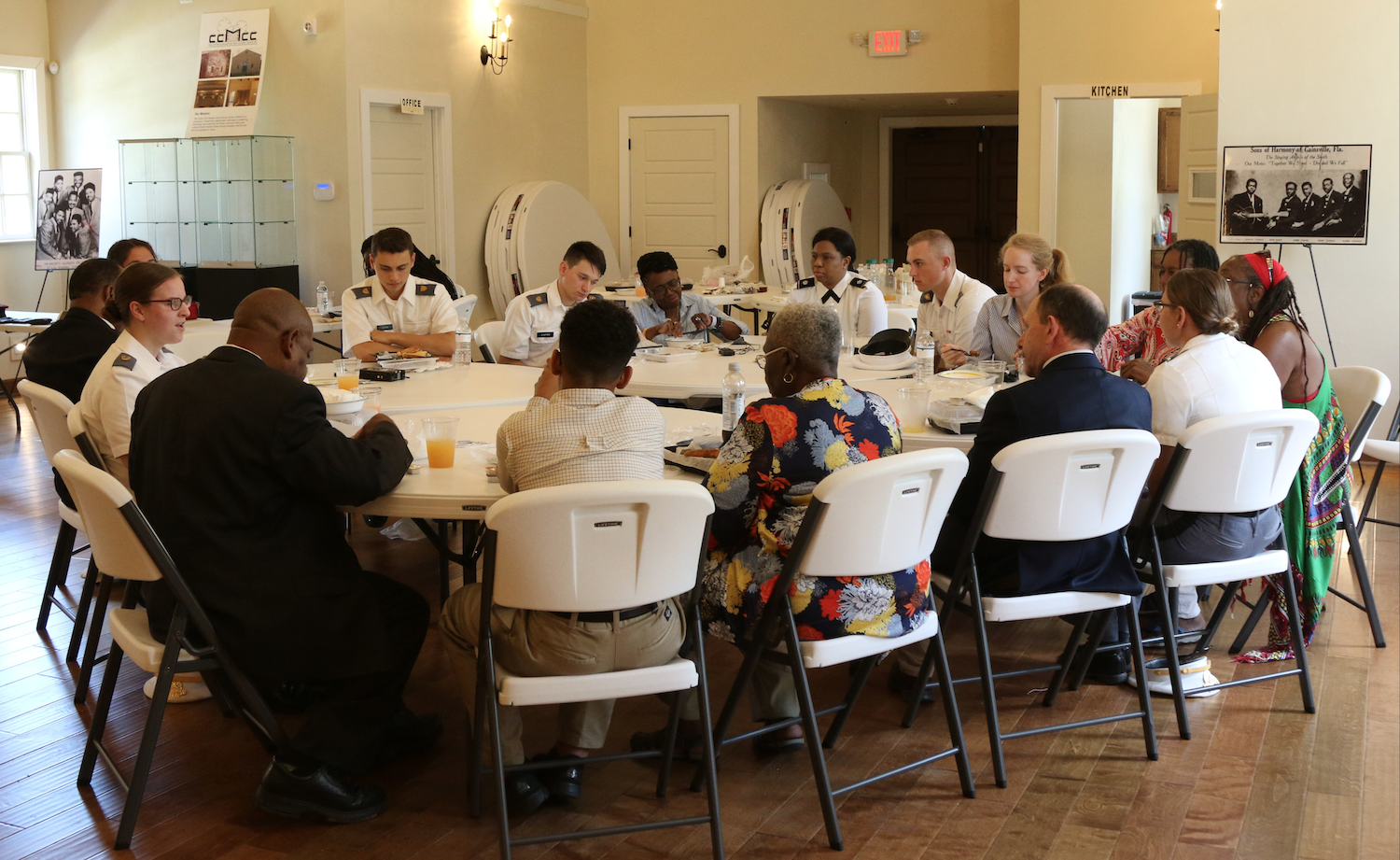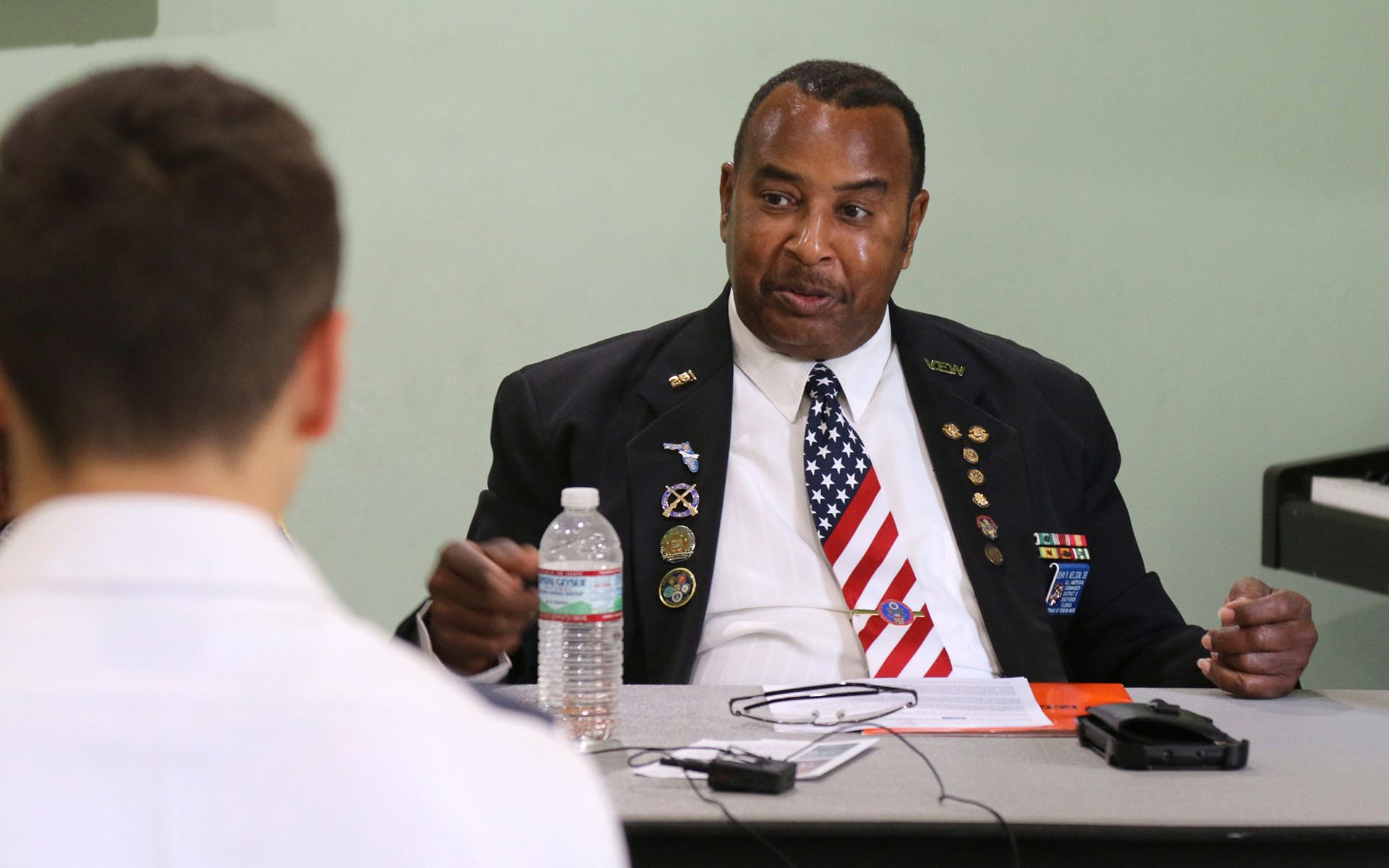UF Oral History Program hosts West Point cadets for a crash course in racial equality
Gainesville was not supposed to be a stop on the 2019 West Point Civil Rights Staff Ride. That was before PAUL ORTIZ, an associate professor of history and director of the Samuel Proctor Oral History Program, got involved.
The Staff Ride steeps West Point cadets in the legacy of civil rights and racial issues through classes and a two-week tour of significant historical sites.
This year, the planned first stop was in Ocoee, Fla., where, on Election Day 1920, white mobs killed an estimated 30-35 African Americans and later drove the rest out of town for trying to cast their votes in the segregated South.
While preparing to lead the trip, Army Lt. Col. LaKeysia R. Harvin, a West Point assistant professor of law who is originally from Gainesville and received her juris doctor from UF, encountered an article Ortiz had written about the massacre. She reached out to him in search of contacts to host the group in Ocoee.
Ortiz, a third-generation military veteran, was eager to help. The idea of versing future officers in civil rights, inclusivity and equality resonated with him personally.
“I thought about my own military experience,” Ortiz said, “and I thought, ‘Wow, I would have loved to work with officers like that.’”
He not only connected Harvin with a civil rights leader and retired Army major in Ocoee, he offered to arrange a second stop for the cadets in Gainesville.

Engaging with the military is at the core of what the Oral History Program does. The program’s interviewers have talked to hundreds of former servicemen and women for its Veterans History Project.
“We’re not doing our job if we’re just talking to people on campus,” Ortiz said. “Part of our job is to be a bridge between the university and the broader community.”
Ortiz saw the cadets’ visit as a chance to use oral history to prepare future military officers to lead diverse groups while advancing ideals of democracy and equality.
“We want to ensure that people in the military understand the value of what they’re supposed to be upholding,” he said.
On their May 30 stop in Gainesville, the cadets attended a panel at the Wilhelmina Johnson Center featuring local activists and civil rights movement veterans, including UF religion professor Gwendolyn Zoharah Simmons and Vivian Filer, chair of the board of directors at the Gainesville Cotton Club Museum and Cultural Center.

After a van tour that showed the cadets how Gainesville has changed over the years, the group had brunch at the Cotton Club. There, they continued their dialogue with the panelists about issues like gentrification and affordable housing.
The Ocoee and Gainesville visits, it seems, set a high standard for the rest of the Civil Rights Staff Ride.
“The good news is that these were two of the most engaging stops on our entire trip,” Harvin wrote in a thank-you note to Dean David Richardson. “The bad news is that it will be hard for other places to measure up to the hospitality, quality and professionalism we received in Ocoee and Gainesville.”
Click here to see more stories from the Summer 2019 Newsletter.
